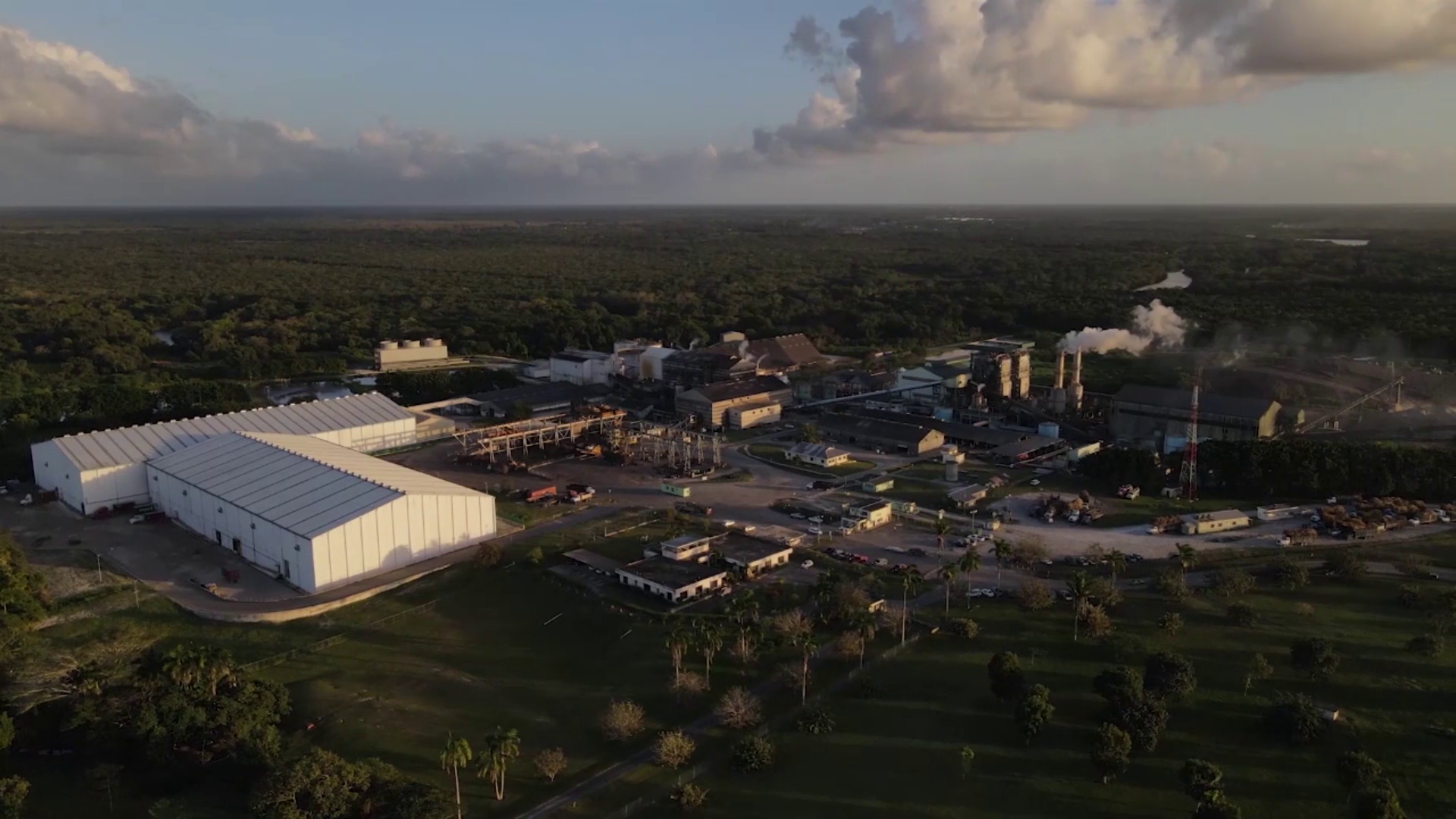Britney Gordon, Reporting
The sugar crop may have ended, but the dedicated team at Belize Sugar Industries Limited is still tirelessly packaging and distributing sugar. As one of the region’s leading sugar producers, Belize should have no trouble ensuring sugar is readily available for the domestic market. Yet, some retailers have imposed limits on how much sugar each household can buy at a time. This raises the pressing question: is there a sugar shortage? To address the speculation, the sugar suppliers provided us with an exclusive tour of their warehouse. Here’s what we discovered.
Shawn Chavarria, Director of Finance, ASR/BSI
“At the beginning of this week, we had approximately seven point five million pounds of plantation white sugar, and we had two point two million pounds of brown sugar. The monthly consumption of white sugar is approximately two point two million pounds. So what that means is that we have enough sugar for the next three point and a half months, and the monthly consumption for brown is around eight hundred thousand pounds. So similarly, We have enough supply to take a shoot at the end of December.”
Director of Finance, Shawn Chavarria, explains that the reports of a sugar shortage confounded the company until they realized that there was a larger issue at hand.
“We have heard reports that customers are complaining that they can’t find sugar in the shelves in the supermarkets. And so that is something that continues to worry us because as we’ve demonstrated here. There is enough sugar in our facilities. We are making it available. But somewhere along the supply chain line, the sugar is not always making it to the intended customer. And so that is something that continues to worry us.”
All signs point to sugar smuggling as the culprit behind Belize’s apparent shortage. One major incentive for smugglers is the price, which remains below the global market rate. Chavarria highlighted that the price of brown sugar has remained unchanged for over two decades, making it an attractive target for illicit trade.
“What we propose the government is that one way to help combat that is to package the sugar in retail packaging. Because that product will be much more difficult for anybody to try to smuggle.”
BSI has been exporting sugar under the Domino brand into CARICOM for about a year. Supply Chain Manager, Eldy Smith tells us that there is currently about one million pounds of this product in stock.
Eldy Smith, Supply Chain Manager, ASR/BSI
“I think that, they are very happy with this type of presentation in the car recall market. And I think that, we’ve got very good news from them, right? Especially since they’re saying that it’s, directly from a container, they can put it Onto the shelf.”
Implementing this proposed packaging would require adjustments to the current price control structure. BSI has suggested that the government deregulate retail packaged sugar while maintaining regulations on industrial sugar.
“The customer will have a benefit of getting a higher premium product because the sugar will be packaged. We have all the control from a quality and safety standpoint to do it here. So the consumer is assured that we are getting a product that is a high standard. We don’t have to worry how it was handled. They’re also going to get the exact weight because our scales are calibrated by the Bureau of Standards.”
BSI has proposed that the government introduce a margin for distributors and supermarkets. Under this plan, brown sugar would be priced at approximately one dollar per pound, while white sugar would be around one dollar and ten cents per pound on the shelves.
“So we would obviously have to sell lower than that to provide sufficient margin for distribution because that’s been another complaint distributors are saying that we don’t make enough to pick up the sugar here and distribute to a consumer then similarly retailers now they don’t have to worry about packaging it themselves hiring people to do that Is that already doing. So there markup is straight on the retail and we think that’s a price that consumers would be willing to pay because again, it’s a premium product. We would still have available industrial sugar, which would be for manufacturers, bakeries, people who make wine. So you essentially have two prices, one for retail, one for industrial.”
In previous efforts, BSI has struggled to adjust the sugar price index successfully. However, they are optimistic that the introduction of this new product will persuade the government to reconsider the benefits of modifying the current standard. If approved, BSI expects the product to hit the shelves by the end of the 2024/2025 crop season. Britney Gordon for News Five.
